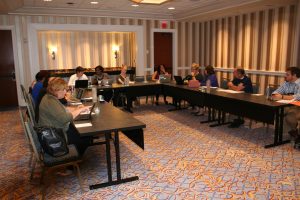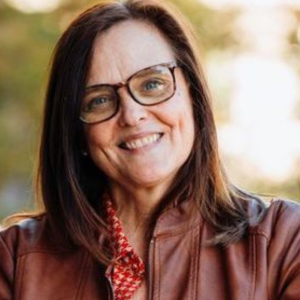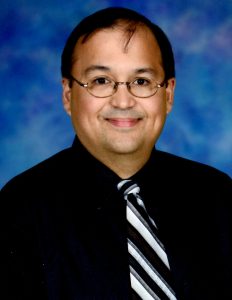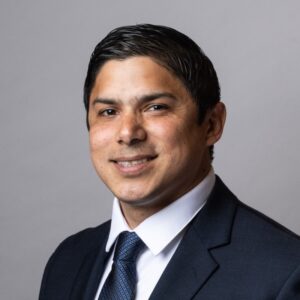About Us
Member-Driven. Community-Focused.

SETDA’s standing member committees are a cornerstone of the association’s member-driven approach. These groups bring together state, affiliate, and corporate members to help shape the direction of SETDA’s programs, partnerships, and priorities—while learning from and supporting one another.
The Board of Directors has authorized three standing committees, each aligned with SETDA’s strategic priorities:
- Membership Strategy
- State Action
- Professional Learning
Participation is open to all eligible member types, with many organizations designating individuals best positioned to contribute. Time commitments are flexible, supporting a wide range of engagement. Emeritus members are not eligible to participate in standing committees.
Committee leaders, selected from the membership, work in close coordination with SETDA staff and the Board to guide committee efforts, foster collaboration, and ensure alignment with the organization’s mission. Their leadership reflects the strength of our community and the power of collective action.
Professional Learning
Professional Learning Committee
Leadership: Rick Gaisford, Utah State Office of Education and Melanie Valentine, Utah State Office of Education
 Rick Gaisford has 35 years in education and has been involved with educational technology for over 30 years at the classroom, school, district and state levels. He was an elementary school teacher, school technology specialist, district technology specialist and trainer. For the past 22 years he has helped to lead educational technology at the Utah State Board of Education. In his current state responsibilities he works with districts and schools on how to effectively integrate technology tools and resources into teaching and learning.
Rick Gaisford has 35 years in education and has been involved with educational technology for over 30 years at the classroom, school, district and state levels. He was an elementary school teacher, school technology specialist, district technology specialist and trainer. For the past 22 years he has helped to lead educational technology at the Utah State Board of Education. In his current state responsibilities he works with districts and schools on how to effectively integrate technology tools and resources into teaching and learning.
 Melanie Valentine’s decades-long career spans many educational trends, from teaching with no technology, to the shift to at-home learning, to navigating AI. She has first-hand experience introducing personal computing to rural teachers in Utah and has classroom experience in several subject areas including English, math, theatre, and computer technology. Her formal education of a masters in Technology and Learning and a PhD in math education allows Dr. Valentine insights as she works to lead technology leaders in Utah..
Melanie Valentine’s decades-long career spans many educational trends, from teaching with no technology, to the shift to at-home learning, to navigating AI. She has first-hand experience introducing personal computing to rural teachers in Utah and has classroom experience in several subject areas including English, math, theatre, and computer technology. Her formal education of a masters in Technology and Learning and a PhD in math education allows Dr. Valentine insights as she works to lead technology leaders in Utah..
Staff Liaison: Julia Fallon
The Professional Learning Committee exists to provide relevant, high-quality professional learning opportunities and to facilitate the development and advancement of job-related skills and knowledge of members. In particular, the committee will focus on opportunities designed to build stronger and more effective state leaders and to develop future SETDA leaders. The committee will review, identify, develop, and provide professional learning opportunities on an ongoing basis to meet emerging needs of the SETDA membership. Focus areas for the committee include:
- Planning for and providing a range of professional learning topics and formats for members, ensuring unique experiences that members view as high quality and relevant to their needs over time.
- Fostering informal networking and relationship building among members, state colleagues, strategic partners, and others.
- Leveraging the SETDA online learning community to facilitate valuable opportunities for professional learning and networking across states and territories during and in-between formal professional learning activities.
- Planning the agenda and content for national gatherings of SETDA members.
- Evaluating the success of the professional learning events, soliciting input from the membership regarding professional learning needs, and revising professional learning activities based on member input.
State Action
State Action Committee

Leadership: Erich Grauke, llinois State Board of Education
Staff Liaison: Ji Soo Song
The State Action Committee exists to inspire and assist states to act collaboratively to advance education through technology policy and practice. It will develop and implement processes to align SETDA initiatives and projects with member priorities for collaboration, and assist states to improve learning by addressing relevant issues and national needs. Focus areas for the committee include:
- Developing and implementing an iterative process to align SETDA initiatives and projects with member priorities for collaboration.
- Identifying and prioritizing key topics, needs, best practices, issues, and concerns related to SETDA’s mission and vision suitable for collaborative state action.
- Creating and operating a “rapid response” process to identify and respond to new or urgent developments that affect states and members. The Board may request responses for urgent matters, and/or the State Action Committee may suggest actions to be taken by the other groups.
- Creating products and/or services that address topics that advance education through technology policy and practice and identifying how strategic partners or other entities should be involved in the creation or dissemination of the products and services.
- Providing advice on the dissemination, curation, and updating of SETDA products and services so that they are easy to locate and use.
- Gathering and disseminating data and information related to state educational technology policies and practices, including maintaining SETDA’s DMAPS.setda.org.
Membership Strategy
Membership Strategy Committee
Leadership: Stan Silverman, New York State Teacher Centers
Stan Silverman specializes in the application of instructional technologies to enhance teaching and learning in K–12 settings. He currently serves as the chair of the NYS Teacher Center Technology Committee, as a member of the NYS Board of Regents Technology Council, with the Professor Garfield Foundation, and is serving as a mentor in the Intel Education Accelerator. Silverman also runs the Technology Based Learning System Department that supports numerous grants and contracts supporting K–12 education throughout the United States, as well as coordinating the establishment of public/private partnerships in New York State. He received his degree in Physics from SUNY Stony Brook and his administrative degree from C.W. Post (LIU).
Leadership: Eli Garcia, SolarWinds
 Eli Garcia serves as the State, Local, and Education (SLED) and Healthcare Marketing Manager at SolarWinds, where he develops and executes strategic campaigns that connect technology solutions with the evolving needs of public sector organizations. With a focus on building meaningful partnerships, Eli works closely with channel partners, industry associations, and education leaders to drive awareness, engagement, and impact. As a proud Texas State University alum, Eli brings a passion for fostering collaboration, expanding member value, and advancing SETDA’s mission to support digital learning and innovation nationwide.
Eli Garcia serves as the State, Local, and Education (SLED) and Healthcare Marketing Manager at SolarWinds, where he develops and executes strategic campaigns that connect technology solutions with the evolving needs of public sector organizations. With a focus on building meaningful partnerships, Eli works closely with channel partners, industry associations, and education leaders to drive awareness, engagement, and impact. As a proud Texas State University alum, Eli brings a passion for fostering collaboration, expanding member value, and advancing SETDA’s mission to support digital learning and innovation nationwide.
Staff Liaison: Trish Stevens
The Membership Strategy Committee (formerly the Membership Engagement & Strategic Partnerships Committee) exists to strengthen member commitment, foster collaborations, and guide impactful initiatives that enhance SETDA’s mission and member experience. This committee plays a critical role in developing and sustaining partnerships, engaging members, and ensuring that SETDA remains a hub for innovation and collaboration within the K-12 educational technology community. Focus areas for the committee include:
- Strengthen Member Engagement: Develop activities and programs to welcome, orient, and sustain the engagement of all members, including new and emeritus members.
- Enhance Collaboration & Partnerships: Cultivate relationships with national organizations, private sector partners, and state leaders to align with SETDA’s strategic goals.
- Guide Sponsorship & Partnership Strategies: Develop sponsorship opportunities, evaluate partnership effectiveness, and foster mutually beneficial relationships.
- Support Policy & Advocacy Efforts: Inform members about key federal and state EdTech policies, providing timely insights and opportunities for engagement.
- Advance Innovation & Thought Leadership: Showcase cutting-edge technology solutions, product development initiatives, and emerging trends in education technology.
- Strengthen SETDA’s Digital Presence: Cultivate an active online and social media presence that fosters dialogue among members, partners, and key stakeholders.

